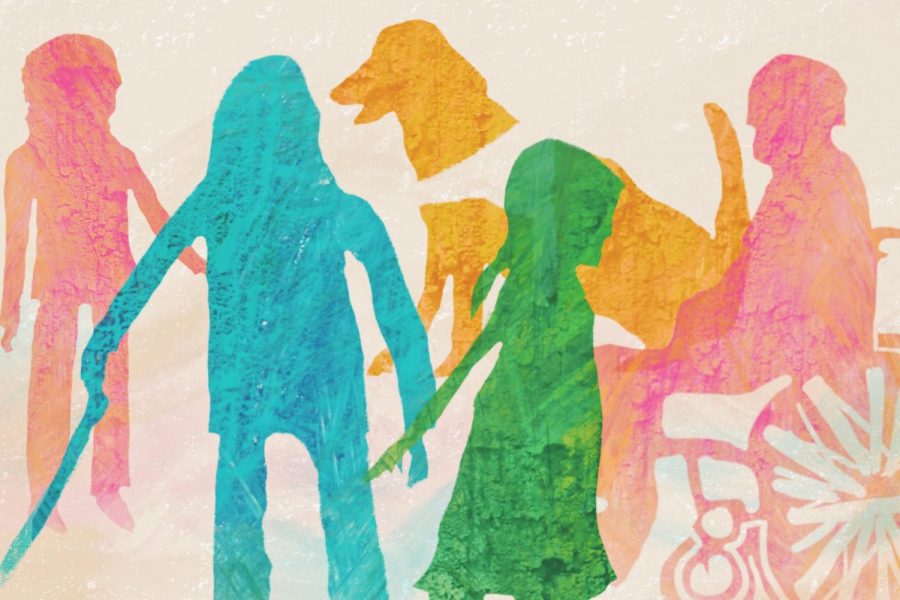“Support and uplift experiences that we have”
July 30, 2021
Editor’s Note: This article first appeared as part of the July 27 flipbook.
“(Disability culture) is embracing all our differences and unique characteristics that make us who we are,” said Samantha Miles, a communication and leadership graduate. “It just means that disabled is only one of our identities. It’s to create a culture to support and uplift experiences that we have — that only disabled people have — and maybe validate those, too.”
Diversity and inclusivity efforts often fail to include disability, especially at UT, where disabled students have expressed concern over accommodation and accessibility. The 2,937 disabled students at UT deserve an inclusive and welcoming campus environment — one that not only acknowledges the existence of their community but also understands the validity of their culture. UT must prioritize and allocate resources to create a disability cultural center on campus to better support and recognize the culture and community that many disabled students share.
Since fall 2020, student advocates have worked diligently to bring this idea to the administrative level. The Natural Sciences Council, Disability Advocacy Student Coalition and other entities have distributed a student survey regarding the creation of a disability cultural center that has garnered 855 responses. Student support is clearly there, so what are the next steps? Why hasn’t the administration affirmed a public commitment to pursuing this idea?
Emily Shryock, assistant director of Services for Students with Disabilities, explained that administration and faculty have been in conversation with students since early 2021 regarding the creation of a disability cultural center.
“This is not a push from students. This is a coordinated effort from students, faculty and staff as well. So, I mean, students have been part of it, but it wasn’t students coming to SSD saying, ‘We want this,’” Shryock said.
While it’s encouraging that the University has been working with students, it’s time for the administration to acknowledge the efforts of student activists and publicize more concrete plans for developing this idea. This is clearly happening due to a push from students, as are almost all initiatives for change on campus.
Shubhi Nanda, Senate of College Councils outreach coordinator and neuroscience junior, expressed that there isn’t always adequate support from administration, especially concerning ideas of accessibility.
“It’s never really come from the admin side, so I don’t even think they realize that it is a problem,” Nanda said. “But then they also become very critical of the fact that we bring it up.”
Too often, the responsibility of advocacy falls on students, but the disabled community shouldn’t have to bear the burden of asking for support and allyship. By listening to and prioritizing the voices of disabled students, administration should understand that a disability cultural center is both wanted and necessary.
Miles affirmed that during her time leading the Disability and Inclusion Agency of Student Government, there was always conversation with administration regarding accessibility. However, any thoughts or concerns regarding disability had to be brought up by students themselves. She also said that she feels the University often allows able-bodied people to make decisions for the disability community instead of genuinely listening to disabled student voices.
Now, the disabled student community is calling for the establishment of a disability cultural center, and we have yet to see any public, concrete commitment from the administration’s side.
Both Miles and the coalition’s President, sports management senior Cole Glosser, said a disability cultural center would have positively impacted their experiences as disabled students at UT.
“Having that kind of community could help a lot because my really bad experience with a professor — the worst one — was my first semester at UT and I didn’t really know that many disabled people here,” Miles said. “So even if they don’t have a solution, they might have resources to help me and they also probably have shared experiences because now I know that having bad experiences with professors is not uncommon. So I think that would’ve helped me a lot more because I felt really isolated in that.”
Services for Students with Disabilities is not enough to serve the disabled student population. Disabled students, especially freshmen, can often feel alone and isolated on campus. A disability cultural center could help mitigate the transition to college by connecting students to outside resources such as assistive technology, and most importantly, to one another.
“Disability culture is to share a sense of pride with others in the disability community and to be fully able to express ourselves,” Glosser said. “It would be especially beneficial to members of the disability community … to have that space to interact with one another and just feel safe … and not have to constantly interact within an able-bodied world.”
A disability cultural center isn’t some far-off concept. Many universities like UT have one; it’s necessary, urgent and perfectly implementable. Creating one at UT would do more than create a safe space for disabled students and expand the resources available to them. It would demonstrate the University’s commitment to recognizing disability culture and the diverse values, goals and identities it encompasses.
The editorial board is composed of associate editors Maria Sailale, Megan Tran and editor-in-chief Sanika Nayak.












